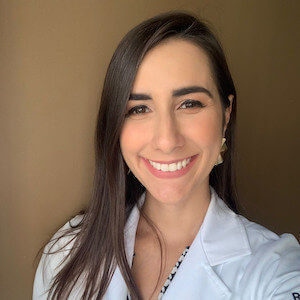If there is a place of extreme sensitivity on the female body, it is the breasts. This happens because breasts have many nerve endings, glands, and muscles, and they can become swollen and painful for several reasons. At some point in life, all women will experience some discomfort or sensation of sore and swollen breasts, with increased sensitivity in the area.
Causes of Swollen and Sore Breasts
Breast pain, also called mastalgia, can occur for various reasons, from a very tight bra to being a symptom of PMS. If sore breasts cause too much discomfort or seem unusual, you should consult a doctor to check the situation. Swollen and sore breasts can begin to occur right at the start of puberty due to major hormonal changes and variations that take place during this stage of life1, especially due to the growth of the breasts which causes intense sensitivity.
Main Reasons for Breast Pain and Swelling
Menstruation – During and before the menstrual period, a woman’s body goes through some symptoms2. One of these symptoms is sore and swollen breasts, which are extremely sensitive. This usually appears two weeks before menstruation, along with cramps, abdominal swelling, pimples on the face, and mood swings. This happens due to hormonal changes during ovulation and the menstrual phase. Anti-inflammatory medications can help reduce pain, as well as drinking plenty of fluids. This helps decrease fluid retention, which makes the discomfort even worse. Pregnancy – One of the first symptoms alerting a woman to pregnancy, along with a missed period, is sensitivity and pain in the breasts. The pain and swelling happen due to pregnancy hormones and may be accompanied by more visible veins on the breast, which become more prominent or darker than usual. If you have a late period, take a pregnancy test to confirm. Ideally, use a highly sensitive pregnancy test, which can detect pregnancy even before your period is late. This is the case for Famivita pregnancy tests. Birth Control – Taking medicines or birth control based on estrogen can cause swelling and pain in the breasts as a side effect, along with headaches, spotting, nausea, and feeling unwell. If the symptom lasts for a long time, your gynecologist should be informed so you can switch medication. Breastfeeding– During breastfeeding, high milk production can cause some discomfort or sensitivity in the breasts. This usually happens mainly in the first few months after the baby is born and returns to normal as soon as the production of breast milk evens out.
Breast Self-Examination
It is extremely important to perform breast self-exams at all stages of life. The exam should not be performed only by the doctor in routine appointments but also to check on the health of your breasts every day3. Ideally, it should be done outside the premenstrual and menstrual period. The procedure is simple and can be done during your bath or when getting dressed. If you notice any gland, lumps, or more swelling than usual, you should see a specialist. The same applies to any unusual pain or excessive sensitivity.
Nipple Discharge and Skin Changes on the Breast
In cases where swollen and sore breasts are accompanied by nipple discharge, hardening of the skin, or changes in breast tissue, the gynecologist may recommend further tests to assess the situation, especially if something could not be identified by palpable examination.
When to Get a Mammogram
Remember that all women over 40 years of age should have clinical breast exams, including a mammogram. The doctors responsible for breast health are gynecologists, GPs, and mastologists. If all possible reasons above, such as pregnancy and menstruation, have been ruled out, the symptoms may be signs of other issues. With the exams requested by a specialist, it is possible to reach a diagnosis and start proper treatment. Sore and swollen breasts are common symptoms for any woman, but they can also be part of some illnesses such as breast infection, lymphatic infections, dilation of milk ducts, mastitis, breast lumps, and even breast cancer. Therefore, do not hesitate to seek medical help if you notice anything unusual in your breasts. Early diagnosis of any problems helps a lot with treatment and improves the chances of success! See also: PMS or Pregnancy – How to Tell the Difference?











